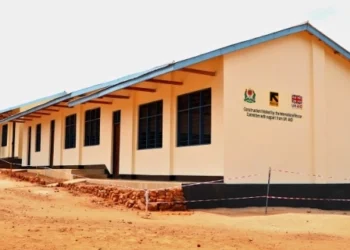The Federal Government’s revised technical education curriculum has been welcomed with cautious optimism, as education and economic experts warn that its success will depend more on implementation than on the quality of its design.
Last week, Minister of Education Dr. Maruf Tunji Alausa announced that the curriculum had been overhauled to cut subject overload, sharpen trade competencies, and align with global standards. The reform streamlines 26 trade areas, targeting Nigeria’s manufacturing, services, and digital economy while preparing young people for modern industrial needs.
Implementation the Real Test
In response, Mr. Bello Audu, Chief Consultant at Economic DTGES and Innovation Economist at Usmanu Danfodiyo University, Sokoto, said the reform was a step in the right direction but warned against celebrating too early.
“The government can do a lot by designing a new curriculum—that is the first step,” Audu said. “But if there’s poor implementation, then it will not achieve the desired aims. A policy can be beautiful on paper and still fail in reality.”
He stressed that both public and private schools will require resources, supervision, and quality control to make the new curriculum effective. “There has to be a mechanism to check and ensure it is being implemented at all levels,” he added.
Call for Federal-State-Local Synergy
Audu further emphasised the need for coordination across the three tiers of government. “There must be synergy between the federal, state, and local governments so that the policy can be implemented smoothly and fairly. Schools that fail to comply should not be overlooked,” he argued.
He suggested that the Federal Government pilot the curriculum in unity schools and federal colleges under its direct control before scaling it nationwide. This, he said, would allow authorities to review progress, assess manpower needs, and resolve challenges early.
Risks of Poor Resourcing
The economist cautioned that without sufficient funding and manpower, many schools might cut corners. “Implementation might be weak from the start because schools lack resources—the facilities, the structure, the teachers. Some states may overlook this, and the results will be uneven,” he warned.
Audu also underlined the importance of accountability systems, including tracking graduates to evaluate how the new training impacts their career paths and life choices.
Grassroots Innovation Praised
Despite the challenges, Audu praised schools already integrating vocational training into their programmes. He cited GCC Girls’ Academy in Maiduguri, Borno State, which equips displaced children with practical skills alongside formal learning. However, he said such efforts remain limited without formal recognition.
“Once vocational training is integrated into the curriculum and carried out regularly, it becomes more impactful and gives learners both recognition and opportunity,” he explained.


















































































 EduTimes Africa, a product of Education Times Africa, is a magazine publication that aims to lend its support to close the yawning gap in Africa's educational development.
EduTimes Africa, a product of Education Times Africa, is a magazine publication that aims to lend its support to close the yawning gap in Africa's educational development.